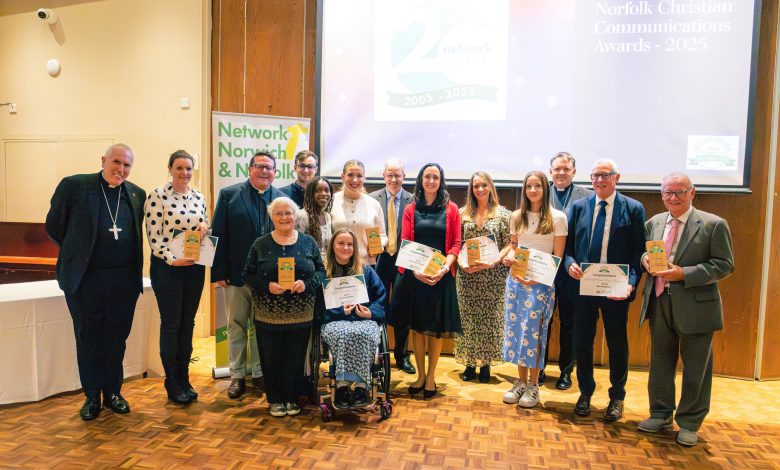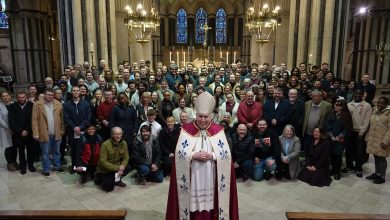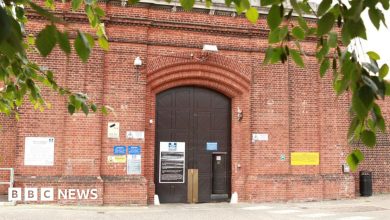Christian Communicators Celebrated in Norwich

Celebrating Christian Communication Excellence in Norfolk
In a heartfelt celebration of faith-based communication, Network Norfolk recently hosted its inaugural Christian Communications Awards, bringing together the region’s most dedicated and creative church communicators. The awards ceremony honored organizations that have excelled in sharing the Gospel message through modern media channels, recognizing both traditional outreach and innovative digital approaches that connect communities of faith throughout Norfolk.
The evening spotlighted remarkable achievements from diverse Christian organizations, including Norwich Foodbank, The Cathedral of St John the Baptist, UEA Christian Union, The Matthew Project, Hethersett Parish, and St Mary Magdalene in Gorleston. The Diocese of East Anglia enjoyed particular success, with its Cathedral of St John the Baptist receiving the prestigious Best Norfolk Church Website award for its exceptionally engaging and accessible online presence. The Diocese also earned a commendation in the Best Picture of the Church in Action category, demonstrating its commitment to visual storytelling that captures the essence of faith in action. These recognitions highlight how traditional institutions are embracing digital transformation to maintain relevance and connection in today’s media landscape, while staying true to their spiritual missions and community service.
Keith Morris, the visionary founder and publisher behind Network Norfolk who established the platform twenty years ago, addressed the gathering with words that captured the heart of the event: “The main reason we are here tonight is to honour all those of you who work so hard and creatively in the communications environment – a role that is very often hidden away behind the scenes, but is of vital importance.” His remarks acknowledged the often-overlooked labor of church communicators who diligently craft messages, maintain websites, manage social media, and create compelling content that bridges the gap between ancient wisdom and contemporary life. Morris noted the tremendous response to the awards initiative, with over 100 entries submitted, 42 finalists selected by a distinguished judging panel, and an impressive public engagement of more than 800 individuals casting over 2,000 votes. This overwhelming participation demonstrates the vibrant, engaged nature of Norfolk’s Christian community and their recognition of communication’s vital role in modern ministry.
The Rt Rev Peter Collins, Bishop of East Anglia, offered moving reflections on Network Norfolk’s two-decade journey and its founder’s contribution to regional Christian communication. “What Keith has contributed, through the establishment of the Good News newspaper first of all, and now the Network Norfolk website as we know it, has been a great service to the proclamation of the Gospel in this region,” Bishop Collins remarked, acknowledging how these platforms have woven together diverse denominations and faith communities through shared stories and resources. His words highlighted the profound impact that dedicated Christian media can have in fostering unity, spreading inspiration, and providing practical resources for churches navigating an increasingly digital world. The Bishop’s appreciation for Morris’s “invaluable” service to the wider church underscored how effective communication transcends denominational boundaries to strengthen the collective Christian witness in the region.
With equal eloquence, the Rt Rev Graham Usher, Bishop of Norwich, spoke about the essence of meaningful Christian communication in our information-saturated age. Drawing wisdom from scripture, he reminded the audience: “The Gospels remind us of two key things. Good communication isn’t about talking more, it’s about listening better. And sometimes the most powerful messages come from stories, not in sermons that lecture people.” His insight cuts to the heart of effective ministry communication – the power of narrative to transform hearts in ways that didactic approaches often cannot. Bishop Usher encouraged the communicators present to see themselves as “makers of salt and generators of light,” using their talents to ensure that “God is not on mute” in contemporary society. His closing affirmation – “You are not on mute. Together we can make Christ known all the more” – served as both blessing and challenge to those carrying the responsibility of translating timeless faith into the language and media of today.
The awards ceremony represented far more than simple recognition of technical excellence or creative achievement; it marked a significant milestone in Norfolk’s Christian community’s embrace of modern communication methodologies while remaining rooted in eternal truths. As churches and faith organizations navigate the challenges of reaching increasingly digital-native audiences, events like this celebrate those leading the way with innovation and faithfulness. Cathedral Manager Charley Purves’s acceptance of the Best Website award from Bishop Graham Usher symbolized this harmonious blend of institutional tradition and digital innovation. The full list of winners across multiple categories showcases the breadth and depth of communication ministry happening throughout Norfolk – from parish newsletters to sophisticated multimedia presentations, from powerful photography to community-building social media strategies. Each winner and nominee represents countless hours of dedicated service, often volunteered, to ensure that the Christian message remains accessible, relevant, and transformative in contemporary society.
As Network Norfolk celebrates twenty years of connecting faith communities through shared stories and resources, this inaugural Communications Awards ceremony stands as a fitting tribute to its mission and impact. The event highlighted how the landscape of church communication has evolved dramatically over two decades – from printed newsletters to interactive websites, from occasional photographs to continuous social media presence, from isolated congregational outreach to interconnected regional ministry. Yet through all these changes, the fundamental purpose remains unchanged: to communicate the timeless message of Christian faith in ways that resonate with contemporary audiences. As churches and faith organizations continue to navigate rapid technological and social changes, events like this provide both recognition for past achievements and inspiration for future innovation. The enthusiastic response from Norfolk’s diverse Christian communities suggests a bright future for faith-based communication in the region, one where ancient wisdom and modern methods combine to create meaningful connections and transformative messages for generations to come.








